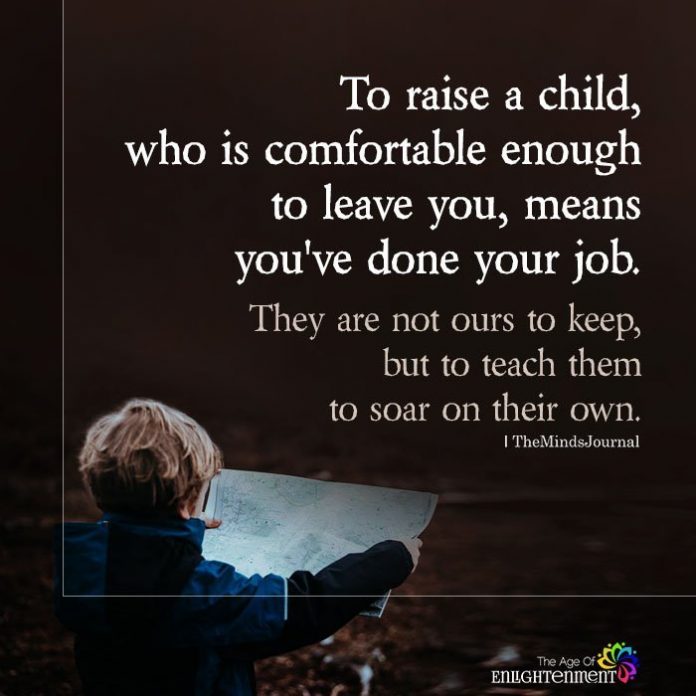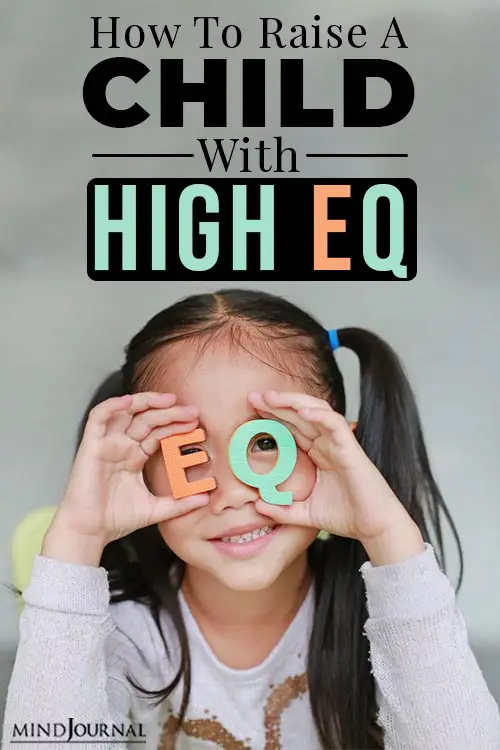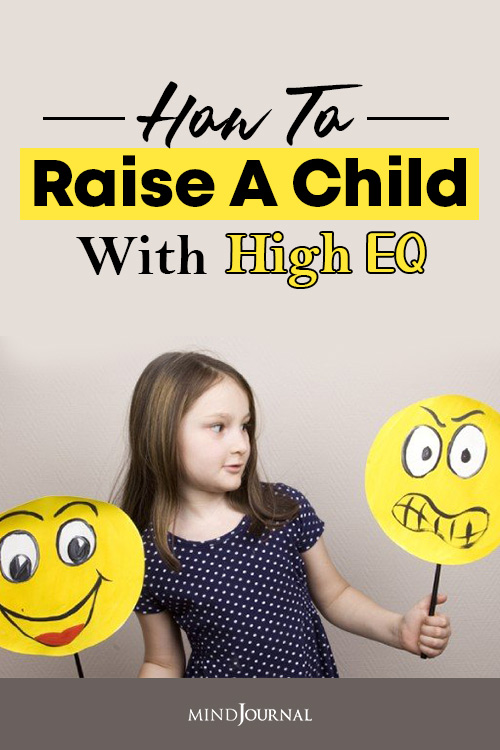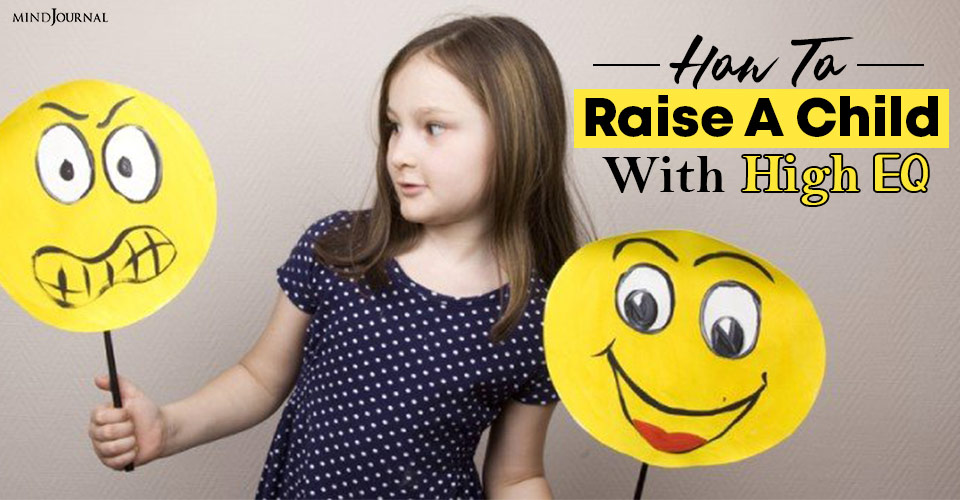Having a child with a high EQ (emotional quotient) is something every parent wants, but do you actually work towards imbibing something like that in your children? The actual secret to raising a child who understands others’ feelings and empathizes with them, is to give your children the space to understand and express their own emotions.
Emotional intelligence refers to the ability to effectively recognize feelings in oneself and others, to appropriately express and regulate these feelings, and to use them effectively to guide one’s thoughts and behavior in working towards a desired goal. — Rachael K. Tan
Self-awareness, emotional attunement to others and knowledge of one’s own emotional states are several qualities belonging to a person with a high EQ.
A child who is self-aware, possesses insight, and is considerate of other people’s feelings is often a child who is emotionally intelligent and on the way to possessing a high EQ.
A multitude of positive emotional qualities stems from these general capacities such as appreciation, thoughtfulness, empathy, and kindness. A child who is in touch with his or her emotions, maybe a child who can identify a feeling state, instead of inappropriately acting it out.
It is natural for a child to have an occasional meltdown, lapse in appreciation, or a self-absorbed moment, but most children with a healthy emotional constitution regularly exhibit conscientious capacities within the context of a close relationship.
“Thank you,” “I’m sorry,” “I made a mistake,” or “Are you okay?” A child who rarely says these without a prompt may lack the deeper emotional aptitudes that allow a person to eventually achieve emotional intelligence.
Too often a parent excuses a child from displaying appreciation, accountability, or empathy. “They are just a kid.” This may be an egregious mistake.
Related: Teaching Your Children Mental And Emotional Balance
Character is established early, and the correlation between a secure attachment with a caregiver and emotional intelligence is evidence that a child is capable of exhibiting these qualities at a young age.
When fostered, these characteristics may result in a child with healthy emotional regulation, emotional intelligence, and eventually a high EQ.
A secure attachment is formed when an infant\toddler experiences a caregiver who is emotionally attuned and empathically responds to him or her.

In addition, a parent who is able to admit fault within the context of the parent-child dyad actually allows a child an opportunity to experience self-awareness and accountability within the attachment relationship.
“I’m sorry I lost my cool. I probably scared you. I love you.” These are examples of a parent who takes ownership of his or her mistakes in a relationship with a child.
When a caregiver displays self-awareness, accountability, and empathy in the parent-child relationship, the child has an opportunity to experience and internalize these emotionally intelligent qualities.
Alternatively, a parent who believes he or she is never wrong, rarely says sorry when he or she makes a mistake and is unaware of a child’s feelings, may unwittingly prevent a child from integrating important emotionally intelligent capacities.
Related: How to Raise Emotionally Intelligent Children: 3 Crucial Lessons To Teach
Moreover, a parent who shames a child for having a feeling that differs from how the parent feels may also be a barrier to the child’s emotional growth.
Although the child’s experience of empathy is what allows him or her to embody the capacity naturally, the difference between an empathic parent and a parent who enables is critical.
If a parent is too accommodating and feels sorry for a child (sympathy), the parent may be tempted to bend the rules, lower the expectations, or give in. Unfortunately, this teaches a child to play the victim, deflect, and project blame, and manipulate to get what he or she wants.
The trick is to empathize, not sympathize, and uphold the expectation.
Examples include:
1. “You are mad. I can see, but you cannot throw your backpack. Please go pick it up.”
2. “You are disappointed. I would be too. I get it but don’t quit, honey. Keep trying.”
3. “You are worried. It’s overwhelming, I understand. But you can do it. Keep at it.”
4. “It hurts to see someone do something you want to do but cannot. I get it. But you can’t take it out on your friend. Please go apologize.”
5. “You are worried about the run. I get it. I get nervous before races too, but you can do this, kiddo.”
A parent who is in tune with how a child feels and honors the feeling, yet upholds expectations and rules, is a parent who empathizes instead of enables.
First, honor the child’s feelings. Next, redirect, correct, reassure, encourage, or problem-solve. Once the child feels understood, less alone, and connected to the parent, he or she is usually more open to the parent’s redirection or reassurance.
If a parent is unable to follow through with expectations and rules, a sense of entitlement may arise in the child. Moreover, shielding a child from disappointment or accountability to protect him or her from emotional pain backfires because the child receives the message that he or she is entitled to receive special treatment.
When a child is able to experience painful emotional states in the context of a comforting parent-child relationship, it helps a child tolerate and regulate these difficult emotions. This often results in a child who is resilient.
Related: 9 Pieces of Wisdom Every Parent Should Teach Their Children
Conversely, a child who is shielded from uncomfortable feeling states such as, disappointment, remorse, and accountability, may not have the opportunity to experience these emotions within the realm of a safe relationship.
If a young child is left alone with these painful feelings states for a prolonged period of time without support, he or she may unconsciously resurrect extreme and robust defense mechanisms to ward off the emotional pain and shame.
Emotional intelligence is a priceless attribute. Raising a child who has a high EQ is an important goal. In addition, its benefits may have a ripple effect on the child’s family, community, and culture.
The compassion and selflessness an emotionally intelligent human being exudes, may resolve conflict, allow for trust in a relationship, and heal and empower others.
Written By Erin Leonard
Originally Appeared In Psychology Today
Like every parent out there, you wish for a child with a high EQ (emotional quotient) is natural. But, when you desire something like that, you need to put in practice to ensure that. Children always rely on the guidance and support of their parents, so as a parent, it is your responsibility to inculcate an emotional balance and maturity in them. If you start doing this from a young age, your children will blossom into emotionally intelligent and happy people.
If you want to know more about how you can raise a child with high EQ, then check this video out below:











Leave a Reply
You must be logged in to post a comment.